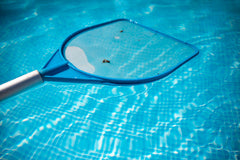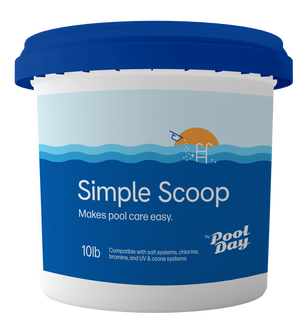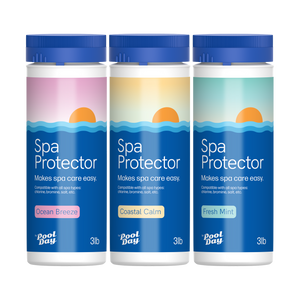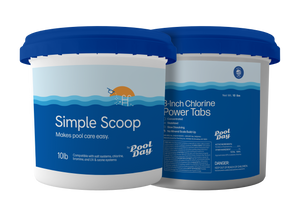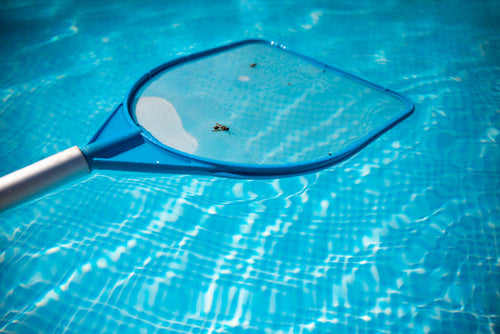Liquid Chlorine vs Chlorine Tabs: Which is right for you?
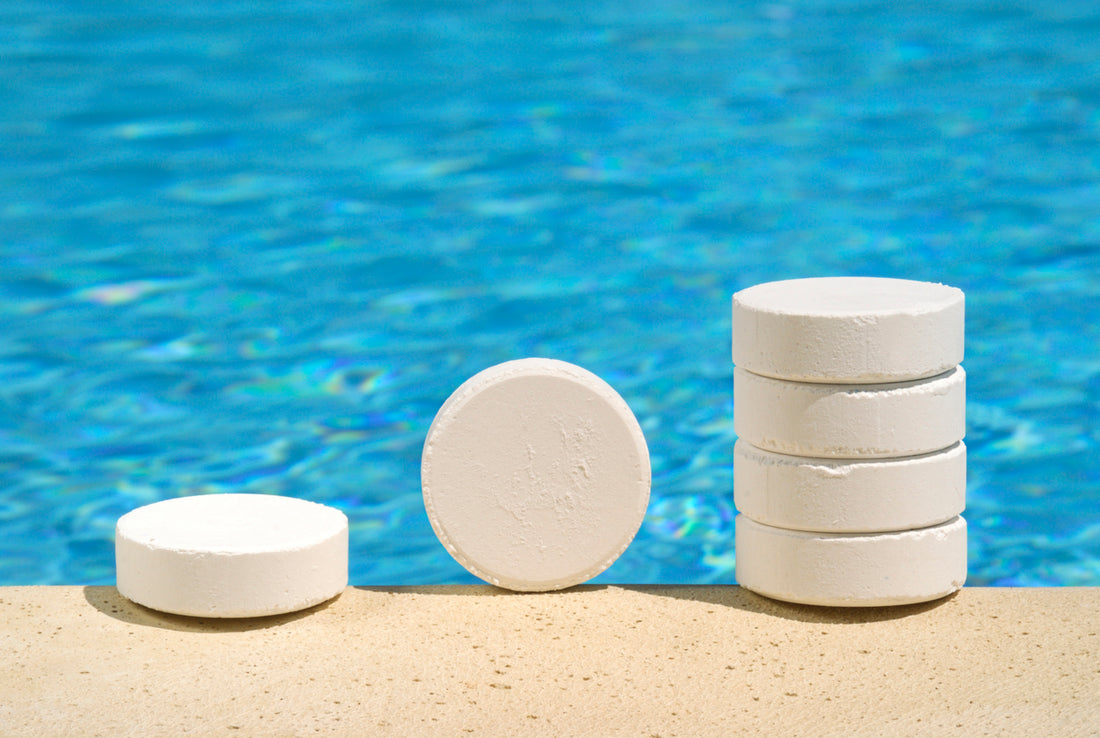
One of the key components of pool maintenance is choosing the right sanitizer. Two popular options are liquid chlorine and chlorine tabs, but which one should you use??
Both have their advantages and considerations. There is no right answer, but understanding the differences can help you make an informed decision about which is best for you and your pool.
Liquid Chlorine:
Liquid chlorine is an extremely effective pool sanitizer. It is typically sodium hypochlorite mixed with water and salt and is available in varying strengths. This type of chlorine is typically used in public swimming pools because it is so efficient in killing off the bacteria that forms in such high traffic pools.
Pros of liquid chlorine
Fast-Acting: Liquid chlorine is quickly absorbed into the water and starts working immediately to kill bacteria and algae. This makes it an excellent choice for shock treatments or when you need to quickly raise the chlorine level in your pool.
Can be added directly to your pool: Adding liquid chlorine to your pool is relatively simple--you can just pour it directly into the pool.
Cons of liquid chlorine
pH Impact: One consideration with liquid chlorine is its effect on pH levels. Since liquid chlorine has a high pH of around 13, it's easy to throw off your pool's chemistry with this chemical. Regular monitoring and adjustment of pH levels are necessary when using liquid chlorine.
Burns off fast: Liquid chlorine is not stabilized, meaning it can be a lot easier for the sun to burn off your chlorine and cause it to dissipate. As a result, Cyanuric Acid must be added to your water separately in order to stabilize liquid chlorine.
Must be added more frequently: Because liquid chlorine acts quickly and is used up right away, it requires frequent manual applications or use of a commercial automatic liquid chemical feeder in order to keep the chlorine levels in your pool stable.
Less concentrated: Liquid chlorine only has available chlorine level of about 10–12% making it less concentrated than chlorine tablets. This means you will have to purchase more volume to get the same amount of chlorine as tabs.
Short shelf life: Liquid chlorine can only be stored for 4–6 weeks as it loses potency quickly and exposure to heat and light can further accelerate its degradation.
TDS build up: Using liquid chlorine will cause total Dissolved Solids (TDS) levels to build up over time. Salt is a byproduct of liquid chlorine, and 1 gallon of product in 10,000 gallons of water will increase your TDS reading by about 26–28 ppm
Can't purchase online: Liquid chlorine is not available for online shipment, so you will have to make a trip to the store to purchase.
Chlorine Tabs:
Chlorine tabs, also known as chlorine tablets or pucks, are another popular option for pool sanitation.
Pros of Chlorine Tabs:
Long lasting: Chlorine tabs dissolve slowly, providing a steady release of chlorine into the water over a period of days. This makes them ideal for maintaining a consistent chlorine level in your pool.
Stabilized Chlorine: Most chlorine tabs contain cyanuric acid, which helps stabilize the chlorine and protect it from degradation due to sunlight. This can extend the life of the chlorine in your pool.
Highly concentrated: Chlorine tabs have the highest available chlorine level of any chlorine compound, so you can buy less volume.
Long shelf life: Chlorine tablets, when stored properly, can be stored for years without losing significant effectiveness. So, you can buy it less frequently.
Can buy online: Chlorine tabs can be ordered online, so you don't have to make a trip to the store to get your chlorine.
Cons of Chlorine Tabs:
Potential for Buildup: One downside of chlorine tabs is the potential for buildup of stabilizer (cyanuric acid) in the pool water over time. This can lead to high cyanuric acid levels, which may require dilution or water replacement to correct.
Cannot be used to shock: Because chlorine tabs are slow releasing, they cannot be used to shock, or super-chlorinate, your pool. So, if you need to raise your chlorine quickly or if your pool requires super chlorination you will have to buy shock or liquid chlorine separately.
Low pH level: The low pH level of 2.8–3.0 will decrease pH, so they tend to lower the pool's pH when you add them. You may need to add some pH Booster to maintain your pool's balance.
Choosing the Right Option:
When deciding between liquid chlorine and chlorine tabs, consider factors such as your pool size, maintenance routine, and personal preferences. Liquid chlorine is ideal for quick adjustments and shock treatments, while chlorine tabs offer convenience and long-lasting sanitation. If you are in the market for some tabs, check out our extremely concentrated 3-Inch Chlorine Tabs!
Whichever option you choose, understanding the differences between liquid chlorine and chlorine tabs, you can make an informed decision that best suits your pool maintenance needs to keep your pool sparkling all summer long!



